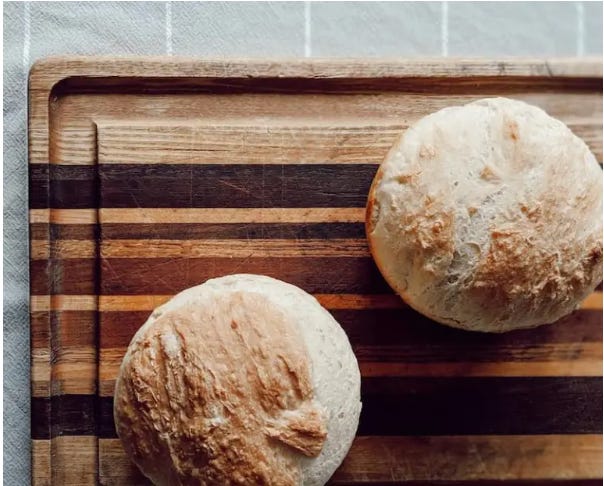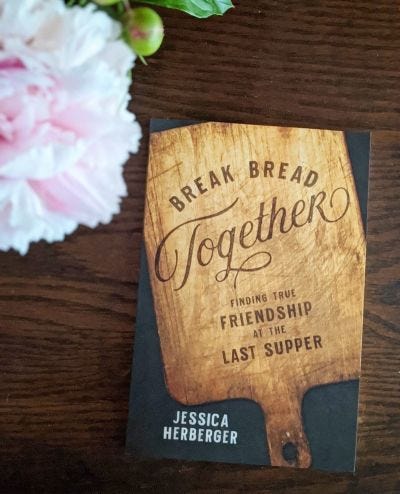Photo by:
In Luke 24 we’re transported to a dusty road headed to Emmaus where two of the disciples were in the middle of discussing the heartbreaking current events they were living through. Jesus, the one they thought might be their Messiah, had died by crucifixion. He had be torn apart by the religious leaders, abandoned by many of his followers, and even outright betrayed by by one of his closest disciples.
I imagine the two disciples feeling any number of things—bewilderment, lament, fear, hopelessness, anger, confusion—when Jesus himself walked up among them and joined the conversation.
Jesus listened, received their sadness, heard their pain, and drew near to them while they were anxious and confused. He mostly asked questions and let them recount their experiences of losing their Messiah back to him. He took liberty to point them to the hope laid out by the prophets, but he mostly just listened and stayed with them.
It wasn’t until he broke bread with them that night at dinner when they saw him for who he was, recognizing him as Jesus. They later admitted their hearts had been burning as Jesus had walked with them and opened the scriptures to them, but it was sharing a meal with him that made the difference. The physical act of breaking bread together helped them see and remember how just days before Jesus had spoken of his own body and blood, breaking bread at what we now call “The Last Supper.” This was more than a template for communion. This was intimacy. Friendship. Promise. Hope.
My friend Jessica Herberger wrote a book Break Bread Together and released it right in the middle of the pandemic when we were all isolated from one another. As strange as it was for her to release a book about friendship and connection through the Last Supper in the midst of a pandemic and a world heaving under the pain of that cultural moment, this message could not have been more relevant at the time.
And now, several years later, I’ve had three different friends in the last week all confess to me (separately) that they’ve been living with deep loneliness that never really let up, even when the pandemic did. The life-threatening covid years have passed, but our loneliness and longing for connection hasn’t.
While each of these friends live in different states or countries than me, they all share the desire for meeting at the Table. They crave friendship, intimacy, connection, and—most of all—the felt presence of Jesus among the family of God.
Can you relate? Are you lonely? Have you been walking under the despair that Jesus is gone and you aren’t sure where to find him?
If that is you, let me encourage you to gather a few friends to your table, break some bread together, and look for Jesus there.
“We can’t keep going wider in our community in an attempt to compensate for lack of depth. As a generation we run the risk of missing out on the abundance found in deep-rooted friendships.” Jessica Herberger, Break Bread Together
What if our need for Christ-centered community and deep friendship is exposed, not just so we can see what we’ve been missing out on, but so we can see and experience what’s available if we come to the table?
What if we break bread together and find Jesus has been there all along?
Love,
Adriel
Get your copy of Break Bread Together here (affiliate link).
A version of this article originally appeared here.
Some questions for you to consider:
How does “breaking bread” in community help us to see Jesus more clearly?
What might Jesus want to teach us through the last gathering he had with friends?
What does breaking bread together speak to us about listening, holding space for one another, and pointing us to the hope of God’s promise?






Leonard Sweet published a book in 2014 titled, From Tablet to Table. It is generally about the same topic as this, Adriel. He cites all the times in the scriptures where food/table was not just mentioned but was important to community. I am going to try and read ‘Break Bread Together’ as well.
I love how you answered this question by simply asking it. ‘What does breaking bread together speak to us about listening, holding space for one another, and pointing us to the hope of God’s promise?’ Listening and holding space for one another is probably more important today than it has ever been.
Thanks for this.
The college community we have joined this year while my husband does his PhD in church history does regular community dinners and it has been the best way to feel less lonely in a new city. Thanks for the reminder to keep reaching out to people.